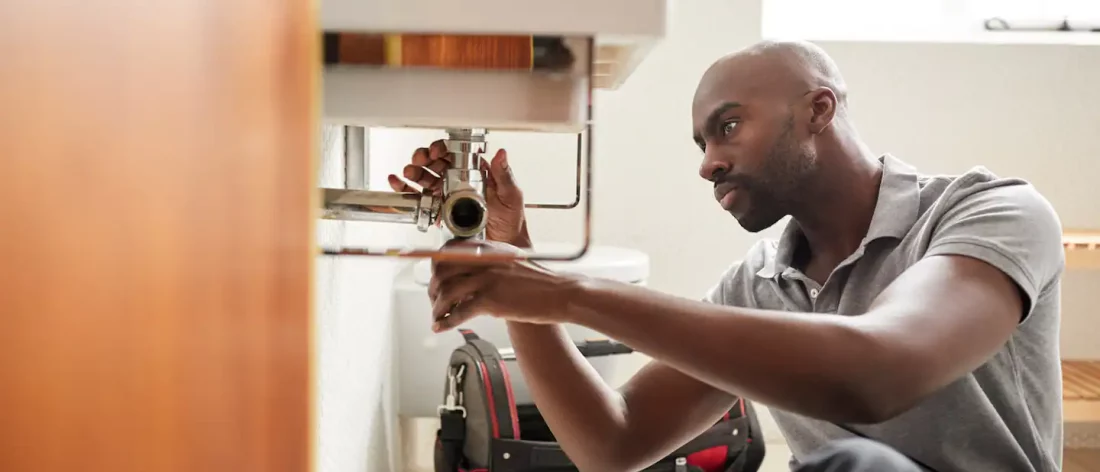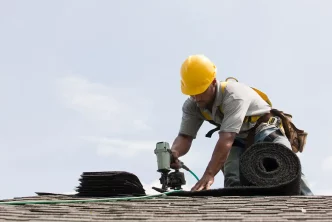Plumbing repair refers to fixing any leaks, clogs, or other issues in a building’s plumbing system, which includes pipes, faucets, toilets, and other fixtures. This can involve repairing or replacing damaged pipes, fixing leaks, unclogging drains, and fixing or replacing broken fixtures. The goal of plumbing repair is to restore the proper functioning of the plumbing system and prevent any future issues.
Plumber Qualifications
A qualified plumber should have the following qualifications:
- License and certification: A licensed plumber should be certified by the state or local government and meet specific standards for education, experience, and exams.
- Education and training: A qualified plumber should have received formal training in plumbing and have practical experience working on plumbing systems.
- Insurance: A qualified plumber should have liability insurance to protect you in the event of any damages or injuries that occur during a plumbing job.
- Tools and equipment: A qualified plumber should have the necessary tools and equipment to diagnose and repair plumbing issues, including specialized tools for specific types of repairs.
- Knowledge and experience: A qualified plumber should have extensive knowledge of plumbing codes, regulations, and best practices, as well as experience working on a wide range of plumbing systems.
- Customer service: A qualified plumber should be professional, friendly, and able to communicate effectively with clients to diagnose and repair plumbing issues.
It’s important to choose a qualified and experienced plumber to ensure that plumbing issues are handled correctly and efficiently, and to avoid potential safety hazards and costly mistakes.
The Cost of Hiring a Plumber
The cost of hiring a plumber can vary depending on several factors, including the location, the complexity of the job, the experience and reputation of the plumber, and the cost of living in the area. On average, a basic service call can cost anywhere from $50 to $150, while more complex jobs, such as fixing a broken sewer line or installing a new plumbing system, can cost several thousand dollars.
It’s also important to note that some plumbers may charge a flat rate for their services, while others may charge by the hour. In addition, some plumbing problems may require specialized tools or equipment, which can also increase the cost of the repair.
To get an accurate estimate of the cost of hiring a plumber, it’s best to get quotes from several different plumbers and compare the prices and services they offer.
Cost of Emergency Plumbing Repair
Emergency plumbing repairs typically cost more than regular repairs due to the urgency of the situation. Plumbers may charge a premium for emergency services, as they are often required to work outside of regular business hours and may need to interrupt their other work to attend to the emergency.
The cost of an emergency plumbing repair can vary widely, but it can typically range from $150 to $800 or more, depending on the extent of the damage and the complexity of the repair. For example, a simple repair such as fixing a leaky faucet may cost $150 to $300, while a more complex repair such as fixing a broken sewer line can cost several thousand dollars.
It’s important to keep in mind that emergency plumbing repairs can be costly and it’s best to take preventive measures to avoid them, such as regularly maintaining your plumbing system and fixing minor issues before they turn into major problems.
Common Plumbing Repair Jobs
Common plumbing repair jobs include:
- Leaky faucets – fixing or replacing washers, gaskets, and other parts to stop a leak.
- Clogged drains – using a plunger, snake, or chemical cleaner to remove blockages from pipes.
- Running toilets – repairing or replacing faulty flappers, fill valves, or flush valves to stop a toilet from running constantly.
- Low water pressure – fixing leaks or replacing damaged pipes to restore normal water pressure.
- Burst pipes – replacing damaged pipes and repairing any related damage to walls, floors, and fixtures.
- Water heater repairs – fixing issues with the heating element, thermostat, or other components to restore hot water.
- Garbage disposal repair – fixing or replacing the disposal unit to restore its proper function.
- Shower and tub repairs – fixing leaks, replacing broken fixtures, or installing new ones.
These are just a few of the most common plumbing repair jobs, and the cost and complexity of each repair can vary widely depending on the specific issue and the type of plumbing system in your home or building.
Saving Costs With Plumbing
There are several ways to save costs with plumbing:
- Regular maintenance: Regularly checking and maintaining your plumbing system can help prevent small issues from turning into larger, more costly problems.
- DIY repairs: Simple repairs, such as fixing a leaky faucet or unclogging a drain, can often be done by the homeowner with basic tools and supplies, saving the cost of hiring a plumber.
- Energy-efficient upgrades: Installing low-flow toilets, showerheads, and faucets, as well as upgrading to a more efficient water heater, can help reduce water and energy bills.
- Water conservation: Implementing water-saving measures, such as fixing leaks, installing drought-resistant plants, and reducing water usage in general, can help lower your water bill.
- Shop around for plumbers: Getting quotes from multiple plumbers can help you find the best price for a plumbing repair job.
- Invest in quality materials: Using high-quality pipes, fixtures, and appliances can help extend the life of your plumbing system and reduce the need for repairs in the long run.
By following these tips, you can save money on plumbing expenses while also maintaining a functional and efficient plumbing system.
Questions to Ask a Plumber
When hiring a plumber, it’s important to ask the right questions to ensure that you’re hiring a qualified and experienced professional who can handle your plumbing needs effectively. Some questions to ask a plumber include:
- Are you licensed and insured?
- Can you provide references or reviews from previous clients?
- What is your experience with the type of plumbing issue I have?
- How do you charge for your services, and can you provide a written estimate?
- What are your availability and response times for emergency repairs?
- Do you offer any warranties or guarantees for your work?
- How do you communicate with clients during the repair process?
- Can you provide a breakdown of the materials and labor costs for the repair job?
By asking these questions, you can get a better understanding of the plumber’s qualifications, experience, and approach to plumbing repairs, and make an informed decision about which plumber is best for your needs.
Plumbing Repair Cost Vary Depending on Several Factors
Yes, the cost of plumbing repairs can vary depending on several factors, including:
- Location: Plumbing costs can vary widely depending on where you live, as the cost of living and the cost of labor can be significantly higher in some areas.
- Complexity of the job: More complex repairs, such as fixing a broken sewer line, will typically cost more than simple repairs, such as fixing a leaky faucet.
- Experience and reputation of the plumber: Plumbers with more experience and a better reputation may charge more for their services, but their expertise and quality of work may be worth the extra cost.
- Cost of materials: The cost of plumbing materials, such as pipes, fixtures, and appliances, can also affect the overall cost of the repair.
- Emergency repairs: Emergency repairs, such as fixing a burst pipe, will typically cost more due to the urgency of the situation and the need for the plumber to work outside of regular business hours.
It’s important to keep in mind that these factors can vary widely and it’s best to get quotes from multiple plumbers to get an accurate estimate of the cost of a plumbing repair job.
In conclusion, plumbing repair is an important aspect of maintaining a functional and efficient plumbing system. The cost of plumbing repairs can vary widely depending on several factors, including the location, the complexity of the job, the experience and reputation of the plumber, and the cost of materials. Regular maintenance, DIY repairs, energy-efficient upgrades, water conservation, shopping around for plumbers, and investing in quality materials are all ways to save money on plumbing expenses while maintaining a functional and efficient plumbing system.



